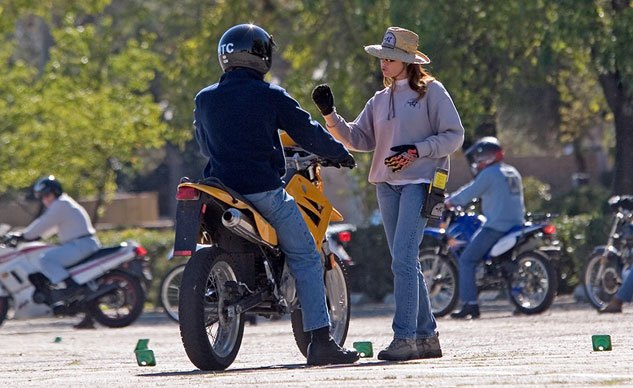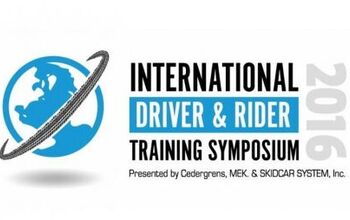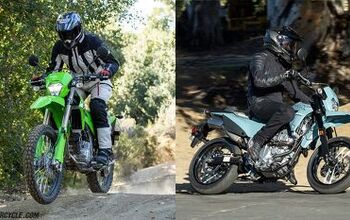Basic Rider Training

Ways to avoid the School of Hard Knocks
So, you’re considering joining the ranks of motorcycle riders. Congratulations! Motorcycling is an activity that many riders immediately fall in love with and even claim to be life altering. You won’t hear any of the MO editorial staff argue with that. After all, we’ve devoted the bulk of our lives, professionally and personally, to motorcycling. Consequently, our opinions skew hugely motorcycling-positive. However, we won’t sugar coat it either. Riding a motorcycle is a challenging sport that requires diligence and constant self-analysis to be done proficiently while limiting danger. With the stakes being so high out on the road, you don’t want to depend solely on the advice of a riding buddy (though it’s always good to have more experienced friends as resources) or just plain dumb luck. With that in mind, we’ve put together this rider training primer to help start you rolling down the highway the right way.
MSF Basic Rider Course
The Motorcycle Safety Foundation is an internationally known non-profit organization operated by the Motorcycle Industry Council, which itself is an organization funded by motorcycle manufacturers and aftermarket companies (i.e. folks really interested in you riding motorcycles for a long time), to promote rider education and safety. The programs created by the MSF are research-based and designed to give riders the requisite skills to go out and learn how to ride out on the public roads.
In order to improve the courses that the MSF provides, it actively participates in safety research with the goal of pinpointing the skills lacking or the behaviors present in accident-involved motorcyclists. A recent research project, the MSF 100 Motorcyclists Naturalistic Study, focused on riders in their daily riding lives to expand beyond the typical accident reconstruction means of gathering data. Instead, this study would focus both on what riders are doing right and wrong. In the future, the MSF plans to fold the information gathered in this and other studies back into its training programs.
One feature of rider education that is often overlooked is that becoming a proficient, safe rider requires a lot more than just taking a safety class. The MSF has been very vocal about rider education being a life-long process that doesn’t end when a person passes a course and heads out on the road. Consequently, the MSF also offers classes for advanced riders, too.
But on to the Basic Rider Course (BRC). Most of the state-sponsored rider education classes are based on the BRC. While some states may mandate tweaks to parts of the curriculum, the BRC is the closest thing we’ve got to a national standard for rider education. For people who are unsure if they want to ride, the MSF offers the MSF Basic eCourse, an online program that outlines many of the basics of riding a motorcycle to help them decide if motorcycling is for them.
Riders who sign up for a BRC receive a total of approximately five hours of classroom instruction and ten hours of riding instruction which is usually over the course of two days. The program is directed towards people who have never thrown a leg over a motorcycle – although more experienced riders can benefit, too. While the skills taught in the BRC are important, many riders make the mistake of thinking that, by passing the course, they are now somehow full-fledged motorcyclists. The hint to this misconception is in the course name. By learning the basic riding skills, graduates are now qualified to be beginning riders. It is incumbent on the rider to diligently practice the skills learned and apply them on the public highways. Remember, rider education is a life-long process, which is why, as said above, the MSF has additional courses for more advanced riders, too.
In the past year the California Motorcyclist Safety Program switched from the MSF BRC and licensed a new provider. Based on the successful Total Control Advanced Riding Clinic, the Learn to Ride and License Course should train about 65,000 riders a year in over 120 training sites. Although this change is the result of a bit of controversy about accident statistics (which you can read about here), having competition within the rider training community should improve the courses – and benefit the riders that take them.
Based on the Idaho STAR new-rider program with select updates added by Total Control President, Lee Parks, the Learn to Ride and License Course will apply new techniques to address concerns that the program administrators (the California Highway Patrol) have about motorcycle accident statistics. Parks’ years teaching the Total Control Advanced Riding Clinic plus his personal research gives him the experience and the knowledge base to create exercises to address the CHP’s issues.
Other Resources
For folks who like to read, there are several books that offer insight for new riders. Ken Condon’s Motorcycling the Right Way teaches strategies aimed at “reducing risks and potential crashes and increasing the rider’s ever-improving skills and situational awareness.” Additionally, he teaches riding classes a calendar for which can be found at the Riding the Zone website, though some riding experience is required. Lee Parks’ book, Total Control, outlining his philosophy about proficient riding may be of interest, as well. Although Pat Hahn’s How to Ride a Motorcycle is getting hard to find, it offers useful riding tips for new riders (and photos by MO staffer Evans Brasfield).
Signing Up
The MSF makes it easy to search for MSF-based new rider courses through a handy web form on its website, www.msf-usa.org. Just enter your zip code, and you’ll be pointed in the right direction. Also, Harley-Davidson is very active in rider education with its HD New Rider Academy. Additionally, Harley created the HD Ride Free Program to give active and former military personnel free motorcycle training. Very cool.
While you’re looking for training, check to see if your state offers incentives for taking the class. Additionally, you may qualify for an insurance discount with a completion certificate. Also, some manufacturers will offer incentives to help pay for rider education when you buy a new bike.
Everyone wants new riders to get trained. While it is not a panacea for all of the risks involved in motorcycling, it does set you on the road to becoming a proficient rider – provided you practice, practice, practice.

Like most of the best happenings in his life, Evans stumbled into his motojournalism career. While on his way to a planned life in academia, he applied for a job at a motorcycle magazine, thinking he’d get the opportunity to write some freelance articles. Instead, he was offered a full-time job in which he discovered he could actually get paid to ride other people’s motorcycles – and he’s never looked back. Over the 25 years he’s been in the motorcycle industry, Evans has written two books, 101 Sportbike Performance Projects and How to Modify Your Metric Cruiser, and has ridden just about every production motorcycle manufactured. Evans has a deep love of motorcycles and believes they are a force for good in the world.
More by Evans Brasfield




















![Marisa Miller Takes Harley-Davidson Rider's Edge Training [Video]](https://cdn-fastly.motorcycle.com/media/2023/05/07/11556202/marisa-miller-takes-harley-davidson-rider-s-edge-training-video.jpg?size=350x220)













Comments
Join the conversation
I did the MSF BRC recently, and I have to say I am not surprised anymore about the sad accident statistics here. There was one guy barely able to get around a turn on a 250cc Honda, and he talked about getting a Hayabusa after the course. He passed (everybody did), meaning a waiver to get the full license. I guess at least he did do the MSF BRC...
I had to either do the BRC or do the test at the DMV to get a license, because neither my German nor my Japanese license were accepted, at least in this state.
Which I think is ridiculous, considering the extensive training and tests you have to go through in both Germany and Japan.
I understand it is a lot more expensive and time consuming, but I think it is way too easy over here to be allowed on the road and be a member of traffic.
(I feel the same way for car license, by the way)
Need to do an article about being an instructor. The people behind the scenes that do the teaching and what it takes to be an instructor